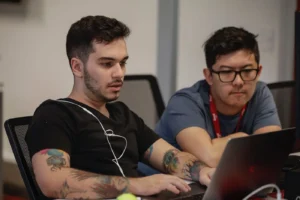A journalist recently asked me what it took to be an innovation professional. I replied that, to start this conversation, it was necessary to understand that this is not an area of a company, but a way of thinking and acting. “So why the misconception, so common?”, she continued. Simple: many companies and entrepreneurs believe that innovation is not theirs core business.
Innovation is leaving people free to think and do differently, regardless of whether the objective is to do something new or improve what already exists. Innovating is necessary.
And it's not (just) me who's saying this. An unprecedented survey by the National Confederation of Industry (CNI) points out that, for 83% of those interviewed, innovation will be essential to grow — or even survive — in the post-pandemic scenario. The survey, released in July 2021, still shows an optimistic scenario, but with obstacles: 92% of companies reported that they innovate, but only 37% say they have a specific budget for this.
Here, I would like to open a parenthesis. To innovate, changing culture and mentality is a more powerful driver than money. Organizations (whether veterans or startups) must have among their values the incessant search for something new, and this must be extremely clear to everyone. In recognition and promotion processes, mistakes should not be a reason for punishment, but rather an incentive for learning.
Empowered people innovate. Disempowered people do what they are asked to do. That's why it's so important to encourage the team to take risks, try to discover better ways of doing things, without fear of making mistakes. Innovation goes hand in hand with tolerance and encouragement of experimentation, where there is a risk of error and no one is looking for someone to blame.
At iFood, we like to think that everything changes and everything will change. So if we're not creating something new, something is wrong. The way people order food today is very different from how they ordered food yesterday. And tomorrow will be different again. We need to get ahead of this.
Our culture of “responsible adults” means that we have innovation in all areas, from HR to the final end of the business. This is a very common term on iFood, which combines autonomy and low complacency. People have a LOT of autonomy to do what they think should be done. We made mistakes trying to do the right thing, and the right thing is what is best for our ecosystem: iFood, the delivery person, the restaurant and our employees.
I ended the interview by leaving three keywords, which I believe are essential for any innovative environment, and which summarize this article well: autonomy, alignment and responsibility. For iFood, which aims to feed the future of the world, we are on the best path: innovation.


